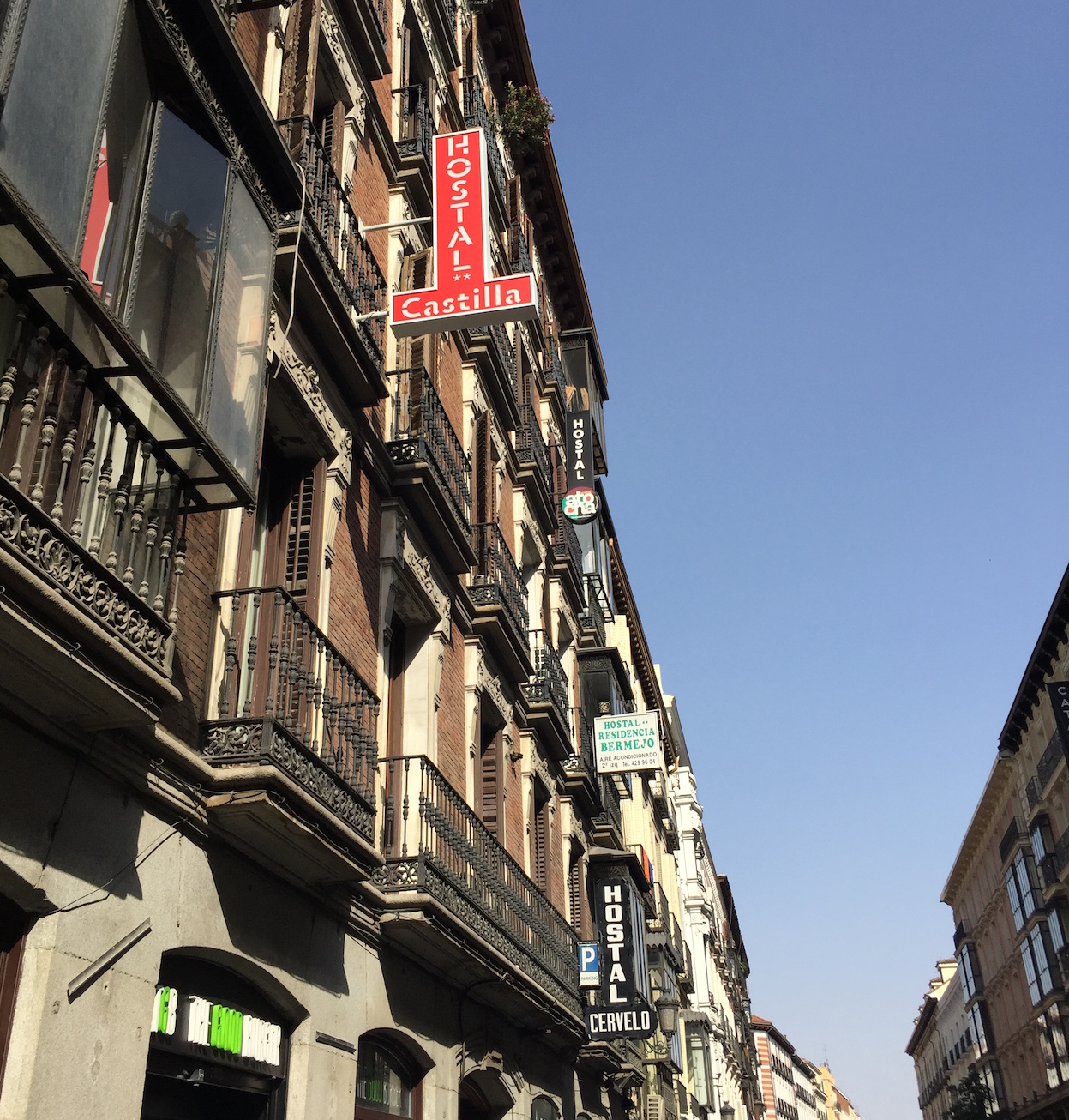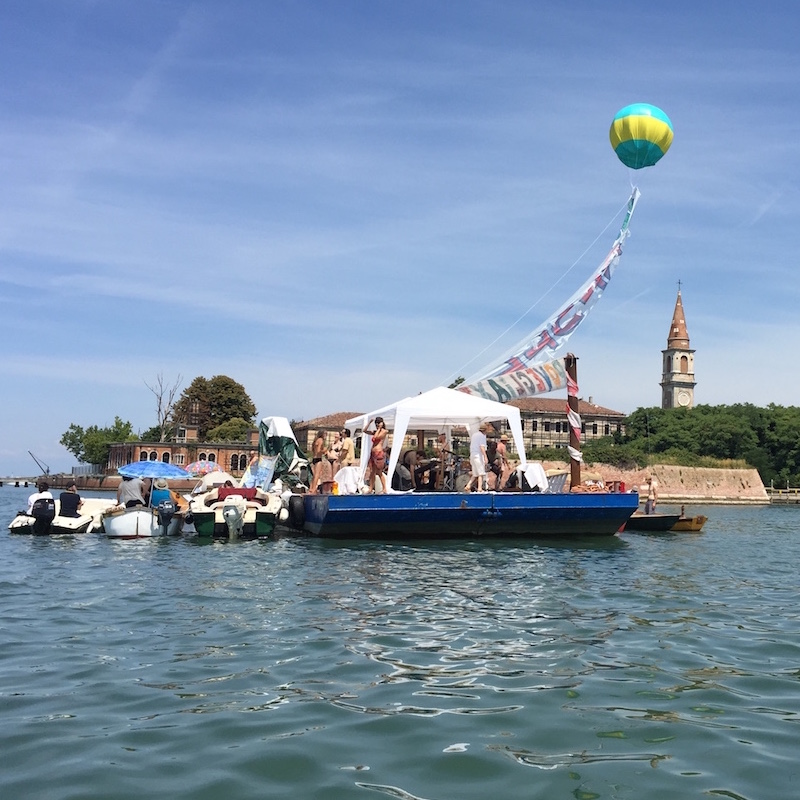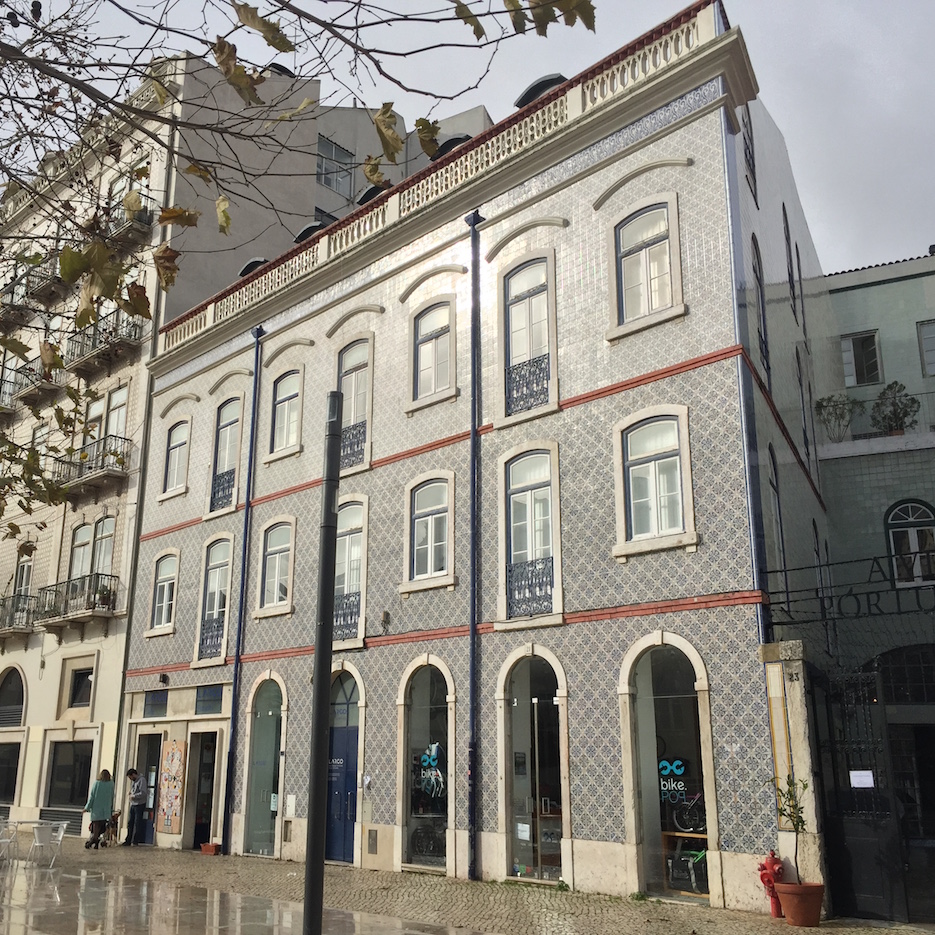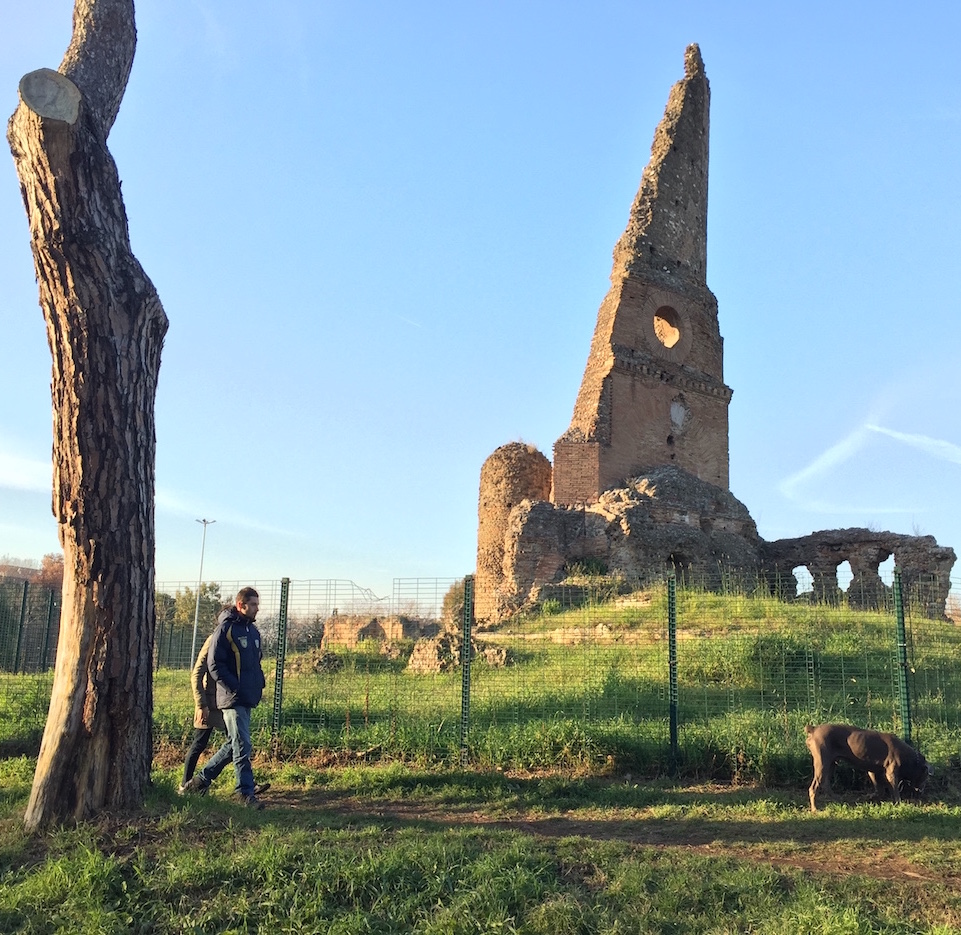The extractive nature of mass tourism is made possible by tourist behaviour, missing regulations and lacking alternatives. There has been very little work done to make tourism more responsible, sustainable and enriching for local communities. While there is a growing number of emerging NGOs, cooperatives and social enterprises to channel tourism revenues into socially meaningful initiatives, they are often isolated and do not constitute a coherent tissue of services that could help tourists spend their budget in a thoroughly responsible way, with the most positive footprint possible. Our selection of interviews and articles aims at mapping and bringing together these initiatives, understanding their functioning, strengthening the ecosystem that feeds them and helping municipalities in adopting their tourism strategies to accommodate more responsible ways of traveling.
Summer is Europe’s high season for traveling. In July or August, depending on local school regimes and temperatures, many Europeans leave their homes to find refreshment at lakesides, rivers or seacoasts, or to discover new cities, new sights, new tastes. While on the road, more than at home, we’re traveling blind: at the mercy of travel agencies, tourism brochures, or accommodation platforms, we’re exposed to competing information channels to provide us information about where to go, where to stay, what to do – what to spend our money on. Like at home, our choices of consumption have a strong impact on local economy and the environment. But unlike at home, we don’t perceive the changes our choices provoked: the housing crisis generated by short-term rental platforms, the transformation of local commerce, the pressure on public spaces and transportation infrastructures or the environmental crisis remain unnoticed for most of us: busy with maximising pleasure and minimising cost, we are ignorant of the consequences of our behaviour.
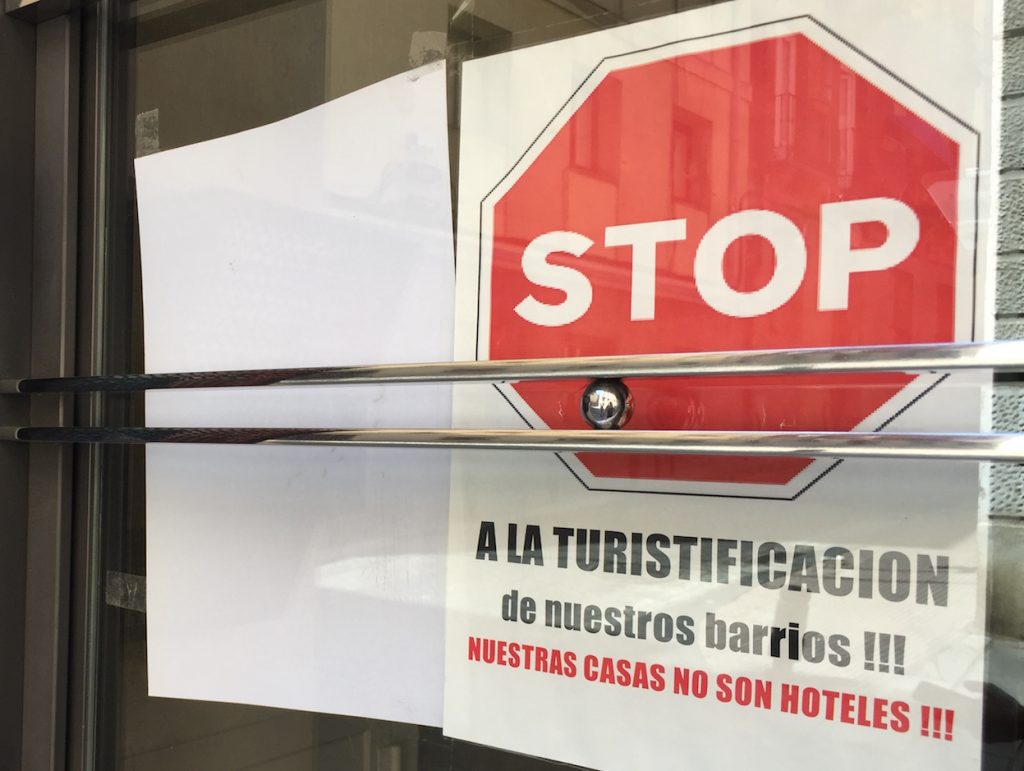
Tourism had been an important resource for many cities in Europe that were struggling with the economic crisis, the impoverishment of various social groups as well as growing unemployment. In recent years, however, many cities have been facing growing discontent with mass tourism perceived as creating environmental and social damage and pushing housing prices to unaffordable levels. In numerous European cities, with the arrival of low-fare airlines, many urban areas turned into clusters of services addressing solely tourists: stag parties, pub crawls and the mushrooming of new venues for eating and drinking have made former residential neighbourhoods unrecognisable, eliminating their social tissues. While these new services have undeniably created new jobs in the nightlife industry, these jobs are mostly precarious, and profit is extracted from local economies, with very little reinvestment in the neighbourhoods where they are generated. In other cities – like in Venice, the prototype city of touristification – pressure on public spaces and green areas has been increasing with new, speculative hotel development projects, as you can read in our article about protests against the privatisation of Venice’s Poveglia island. The increasingly negative impact of tourism brought to life many initiatives and networks to empower critical voices, like SET in Southern Europe. However, tourism is not likely to go away soon: while supporting regulations to control tourism and mitigate its damages, we also need to develop alternatives that help tourists make choices in more responsible manners.
The association Poveglia per Tutti has been fighting to reclaim Poveglia, one of the many islands scattered across the Venetian lagoon, and make it a public place for the Venetian community to enjoy rather than yet another tourist resort. Historically, resident Venetians have always seen the southern lagoon as some sort of an urban park. In the past 15-20 years, at least 5 of the 6 islands forming the small archipelago lying behind Giudecca have been privatised. Step by step, public spaces started to disappear. The last one is Poveglia, which is why there is so much local attention towards it. Read our article here.
The extractive nature of mass tourism is made possible by tourist behaviour, missing regulations and lacking alternatives. While many European cities have been investing a lot of energy into attracting an increasing number of tourists, there has been very little work done to make tourism more responsible, sustainable and enriching for local communities. Similarly, while there is a growing number of emerging NGOs, cooperatives and social enterprises to channel tourism revenues into socially meaningful initiatives, they are often isolated and do not constitute a coherent tissue of services that could help tourists spend their budget in a thoroughly responsible way, with the most positive footprint possible. Cooperative City has been for years engaged in exploring and introducing such initiatives across Europe. Our selection of interviews and articles aims at mapping and bringing together these initiatives, understanding their functioning, strengthening the ecosystem that feeds them and helping municipalities in adopting their tourism strategies to accommodate more responsible ways of traveling.
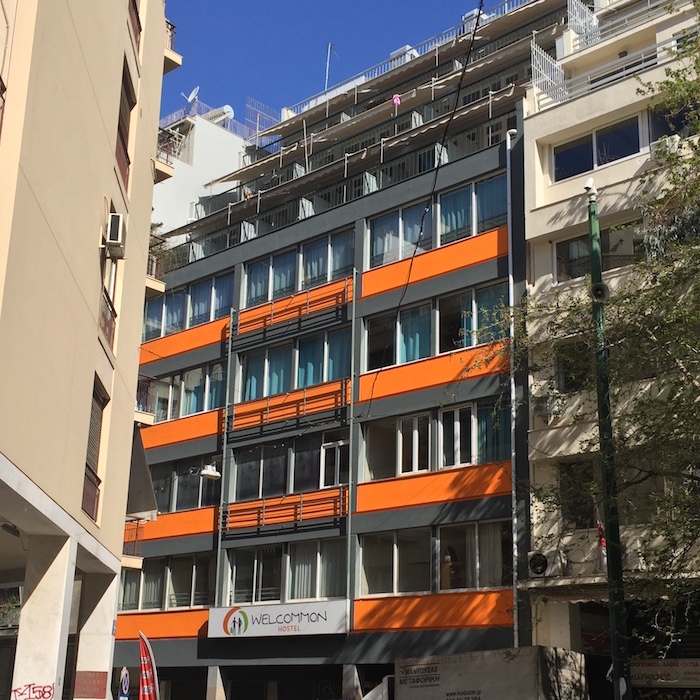
The Welcommon Hostel is a former refugee shelter turned into a hub for social inclusion and environmental education in Athens. Run by the social cooperative Anemos Ananeosis, Welcommon uses tourism revenues to invest in social activities. The highest floors of the building are used as a hostel while the lower floors have a lot of space available for workshops, conferences and events. Welcommon promotes social innovation, greenovation and circular economy, supporting the social inclusion of refugees, news distribution, and climate protection. Read our article here.
Our impact on the cities we visit is manifold. Our choice for accommodation can have an impact on the local housing and labour market – and can unsuspectingly support authoritarian regimes by spending in their economic hinterland. In the past years, we have witnessed a new genre of hostels and hotels that use tourism and a means to create local jobs, train vulnerable people or create social welfare services or cultural events, while not stressing the local housing market. Largo Residencias in Lisbon is a cooperative hotel and hostel that employs people who come from chronic poverty and serves as a reference point for cultural events and the discussion about the future of the Intendente neighbourhood.
Largo Residencias is a hotel, hostel and artist-in-residence and café in Lisbon’s fast-changing Intendente neighbourhood. Run by a cooperative, Largo aims at connecting the area’s past and future: it serves as a community hub for many of the area’s residents and initiatives, and develops projects to support the cultural and social inclusion of the neighbourhood’s precarious inhabitants. The organisation also employs people who come from chronic poverty and serves as a reference point for cultural events and the discussion about the future of the Intendente neighbourhood. Read our article here.
Welcommon Hostel in Athens is a former refugee shelter turned into a hub for social inclusion and environmental education. Magdas Hotel in Vienna trains refugees to find jobs in the tourism industry. Besides hosting tourists, Casa Netural in Matera (European Capital of Culture 2019) also functions as a co-working space and an incubator for innovative and experimental projects in the fields of agriculture, design and culture. Atlas Hostel in Gran Canaria acts as a hub for neighbourhood activities and events. Zazie Hotel in Paris helps in the reinsertion of long-time unemployed people into the labour market. In an experimental phase, the Fairbnb platform is getting ready to connect hosts and guests across Europe in a non-extractive network that channels a part of its revenues into local social projects.
Besides where we stay, the choice of where we eat or consume other goods also have an impact on the cities we visit. Even in the most touristified cities, visitors and their spending are concentrated in a few circumscribed areas, while other neighbourhoods lack resources and jobs. By concentrating too much attention on a few areas and services, like a famous bookshop in Porto, we might turn them into tourist reserves. While some cities like London try to use zoning to move tourism from central areas to more resource-hungry boroughs, in other cities, bottom-up initiatives work on distributing tourism to neighbourhoods where additional revenues are most needed. In Rome, a city with high inequality between central and peripheral areas, Ecomuseo Casilino highlights the archaeological heritage and contemporary cultures of the Pigneto and Torpignattara neighbourhoods of Eastern Rome, attracting visitors and helping local businesses. In the North-western part of the city, the agricultural cooperative Cobragor caters to tourists interested in resourced food and responsible accommodation.
Ecomuseo Casilino is an open-air, community-conceived museum in Eastern Rome, operating beyond the standard notion of an walled institution. The Associazione Culturale Ecomuseo Casilino Ad Duas Lauros is committed to collect cultural resources, based on what local communities consider as such. The Ecomuseum’s work consists of mapping, gathering information and storytelling: besides all the historical, archaeological and artistic heritage, the association also explores objects of cultural value that local residents consider vital for the community. Read our article here.
Our means of traveling also adds to our travel impact. With over … people flying around the world, the aviaion industry’s ecological footprint has been reaching 2% of the global amount of CO2 emitted. As an alternative, Europe’s night train network, growing again after years of disinvestment and decline, makes it possible to travel long distances without flying. In cities, tourists pretending to be locals often paralyse local means of transport to the extent of preventing locals from using them like in the case of Lisbon’s famous tram no. 28.
Paying more attention to how we travel, where we stay and how we spend our money are important means of being more responsible tourists. While some cities have actively developing regulations to make tourism less damaging and more beneficial, and many local initiatives have been working on channelling tourism revenues into positive social impact, there is still little public understanding of responsible alternatives. In order to make these alternatives more visible, Cooperative City has been building a map exploring new, responsible ways of traveling.
Our European map of Responsible Tourism is still in the making: write us to info@cooperativecity.org and help us with suggestions, reports and interviews to develop further this map!

